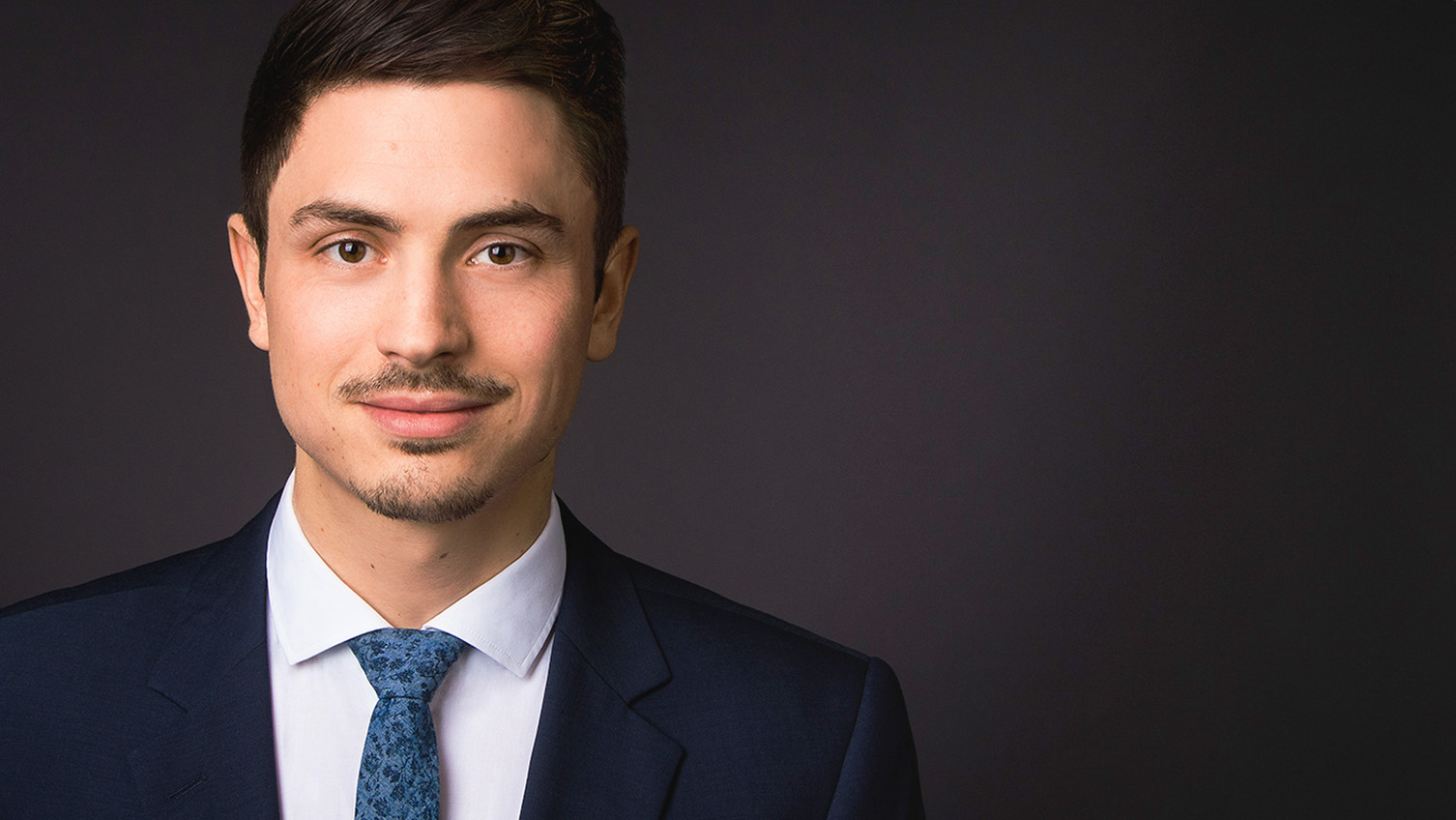Automated driving: Felix Kortmann - Big Data for more safety
2021-03-29 Information about the condition of roads is interesting for both local authorities and the car industry. The doctoral student in business informatics has developed a method that enables continuous measurements with car sensors installed as standard. Most recently, the 29-year-old excelled in a worldwide science competition on machine learning.
On average, the condition of our roads is determined every three to four years with special measuring vehicles. Damage is therefore often only detected belatedly. Engineer Felix Kortmann is now working on a system that uses existing sensor technology in cars to permanently collect data on road conditions. He utilises the sensors for vehicle level and acceleration, both of which are used e.g. for headlamp levelling. Via the car's spring-damper system, sensors record differences in height when driving, caused by potholes or bumps, for example. In addition, a camera takes photos. With the help of software, the collected data is to be uploaded to a cloud platform in real time. Measurement results could then be made available to all drivers via the Internet. The development is intended not only to improve driving comfort by informing the car at an early stage about road irregularities, and also about different road surfaces. But it can also make an important contribution to automated driving: "In order to guarantee safety with this new technology, we need very precise information about the driving environment," explains Felix Kortmann. He himself has equipped two vehicles with the technology he developed, which now collect data for him. In other words, what drivers previously recorded with their eyes or ears is now taken over by sensors.
Felix Kortmann has been exploring the Internet of Things since before he started his doctorate. His aim is to connect things from the real world with the internet in order to use functions more intelligently. Felix Kortmann worked for the auditing company and management consultancy Ernst & Young for a year as a student trainee before becoming a consultant. In this position, he used the Internet of Things to optimise logistical processes. During his dual studies in mechatronics at Hamm-Lippe University of Applied Sciences, he was already employed by the HELLA Group, a listed producer of lighting technology and electronic products for the automotive industry. After studying industrial engineering at Mannheim University of Applied Sciences, he joined the Lippstadt-based company as a research assistant. "I applied for a doctorate from within business," Felix Kortmann reports. A friend in Berlin told him about Dr. Paul Drews, Professor of Business Informatics, in particular Digital Transformation and Information Management at Leuphana University Lüneburg: "A great match considering the digital challenges facing HELLA, a traditional component manufacturer," says Felix Kortmann. Dr Burkhardt Funk, Professor of Business Informatics, in particular e-business, and Dr Jens Heger, Professor of Engineering, in particular modelling and simulation of technical systems and processes, also supervise his academic work, in order to do justice to the interdisciplinary approach. The results of Felix Kortmann's research are not only of interest to the car industry, however, but also to urban planners. The doctoral student has already presented and applied his development in France. Most recently, he performed convincingly at the renowned IEEE International Conference on Big Data 2020, where the organisers had announced an international competition for object recognition: With the help of 30,000 labelled images of road irregularities, a neural network was to be trained to recognise potholes, for example, on the still unprocessed images. The doctoral student was one of the twelve best participants. He expects to complete his doctoral thesis this year and is considering a career in science.

